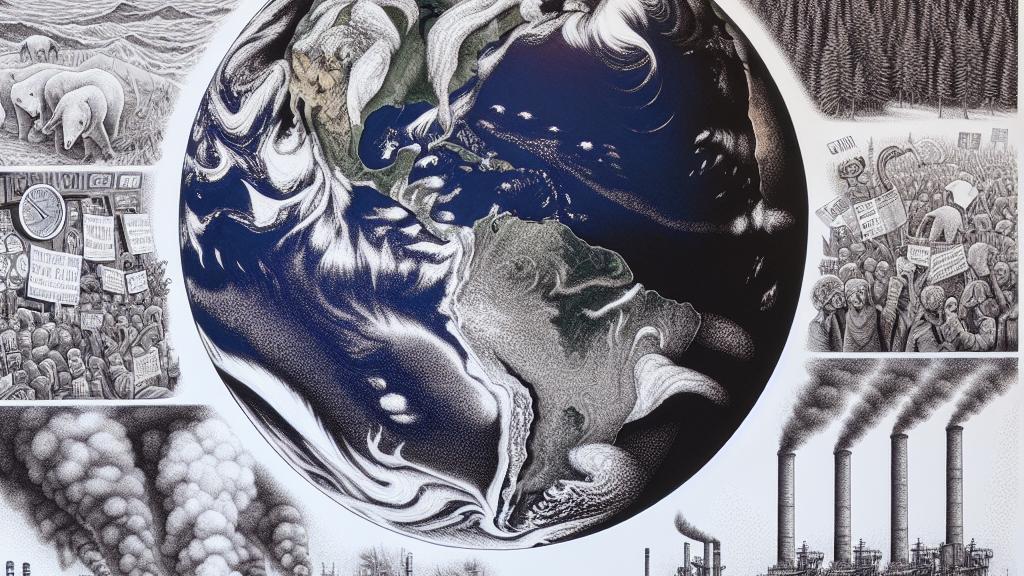US's Plans to Expand Drilling and Withdraw from Climate Agreement
Overview
- President Trump's administration makes waves by withdrawing from the Paris climate accord, defying global expectations.
- A declaration of national energy emergency is set to unleash aggressive oil and gas drilling across the country.
- Experts and advocates express grave concerns, warning of serious repercussions for international climate efforts and future sustainability.

Withdrawal from the Paris Agreement: A Global Implication
In a move that has sent shockwaves across the globe, President Donald Trump announced that the United States will once again pull out of the Paris Agreement. This landmark treaty is not just another international document; it embodies a collective hope for a more sustainable future, aiming to keep global temperature rises below 2 degrees Celsius. With climate change presenting one of the most daunting challenges humanity faces today, such a retreat raises eyebrows, especially since experts emphasize the urgent need for cohesive action. Critics argue that America’s withdrawal could encourage other heavy polluters, like China and India, to weaken their commitments as well, further endangering our planet’s prospects. The ramifications of this decision are more than a political statement; they threaten the credibility of global efforts to combat climate impact.
National Energy Emergency: The Drilling Directive
To complement this withdrawal, the Trump administration declared a "national energy emergency," a phrase that sparks visions of vast oil fields and gas rigs. This declaration promises a surge in oil and gas drilling, invoking the slogan, "Drill, baby, drill!" Supporters believe this bold initiative will pave the way for U.S. energy independence and economic revival. Imagine bustling drilling sites providing fresh opportunities for countless workers—sounds enticing, right? But let’s not ignore the catch: environmental advocates quickly highlight distressing facts like the summer wildfires devastating California and the record-breaking hurricanes that have swept across coastal regions. Each event serves as a crucial reminder that climate change is not fictional but a pressing threat that we must acknowledge, lest we pay the price for our shortsightedness.
Public Reaction: A Landscape of Division
The reactions to Trump’s energy policies reveal a nation sharply divided. On one side, energy industry leaders have cheered this pivot towards fossil fuels, viewing it as a resurgence of 'American energy dominance' and heralding job creation as a major benefit. They believe that increased drilling will ultimately lead to lower prices at the gas pump and reinvigorated local economies. Yet, that optimism is met with stern opposition from passionate environmentalists who warn against the dangers of unchecked fossil fuel reliance. They point to recent climate disasters—like the relentless heat waves and catastrophic flooding—as evidence that our planet is sounding alarm bells. The overwhelming scientific consensus is clear: ignoring the climate crisis and opting for fossil fuel growth is akin to playing with fire. As we sit on the brink of irreversible change, the urgent call for a unified commitment to sustainable practices has never been clearer.

Loading...